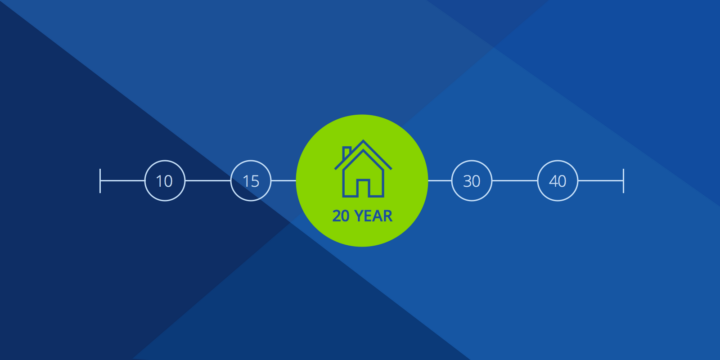MDIA - Mortgage Disclosure Improvement Act...What does this mean to you?

Written by Zillow on July 31, 2009
UPDATE
I've updated the business day definition and APR change needed to re-disclose. Saturdays are only considered business days if the mortgage company is open to the public as standard operating hours on Saturday. APR change requires .25% change on irregular transactions such as Adjustable Rate Mortgages for re-disclosure.
The MDIA (Mortgage Disclosure Improvement Act) is a brand-new regulation that is on the minds of all mortgage professionals, but what does it mean to consumers?
Below are the four main changes:
Collection of Fees: The only fee that can be charged to the borrower prior to the loan application is a credit report fee. This fee must be reasonable, which is usually between $12-35 dollars depending on the company and whether the report is for a single borrower or joint.
New Business Day Definition: Saturdays are now included as business days on all regulations if the mortgage company conducts business on Saturdays. If you see any paperwork that discusses timelines for a mortgage, Saturdays are included. Sundays and federal holidays are excluded.
Timing of Disclosure: the law has always required disclosures within 3 days of the application. The new added regulation is that the client cannot close within 7 days of the application. This gives the client time to review the loan terms offered to them
APR (Annual Percentage Rate) Change: If the APR changes by more than .125% since the last disclosure, the borrower must be re-disclosed and cannot close for 3 days from last disclosure for regular transactions (fixed mortgages). If the APR changes more than .25% on irregular transactions such as an Adjustable Rate Mortgage (ARM), then the borrower must be re-disclosed.
Why were these changes made?
The regulations for collecting fees were made to protect borrowers from paying excessive fees prior to receiving loan terms or disclosure. Lenders have to pay for the credit report, so regulations have been made where the upfront costs are limited to only the credit report. So be prepared to pay this when you apply, but nothing more.
There are now two extra restrictions regarding when you can close. It is now prohibited to close within 7 days of when the borrower was initially disclosed. This gives the borrower time to review the initial disclosures and ensure they are getting the proper loan for their needs. It is also required that the borrower be disclosed no later than 3 days prior to closing if the APR changes by .125% or more. The APR is a calculation of your finance charges which include the interest you pay on your loan and some of your closing costs called Prepaid Finance Charges (PFC's). So if your rate and/or fees go up too much, you must be re-disclosed and given 3 days prior to signing.
Adding Saturday as a business day helps keep the loan on track to close. Since the two extra restrictions given above can delay a closing, they have included Saturdays as a business day. If you receive disclosures just prior to a weekend, it is now your responsibility to make time to review the disclosures on Saturday.
That all sounds good. Should I be worried?
Yes! Ultimately, all these changes are good for the borrowers. However, if you or your real estate professionals are not prepared for these changes, some major issues may arise during your closing.
Obviously, nobody wants to pay a higher rate or fees than they were quoted, nor should they. However, if you’re at the end of a purchase transaction with a large amount of earnest money on the line, you may have more at risk than the extra costs associated with a higher APR.
Let’s suppose you are first-time home buyer and have found the right home. You make the offer and it’s accepted at $100,000. You plan on getting a FHA loan and your disclosed at a rate of 5% and an APR of 5.709%. However, your lender forgets to include the FHA Upfront Mortgage Insurance Premium in the APR calculation as a Prepaid Finance Charge. Your lender is responsible for disclosing all of the fees properly, including “Prepaid Finances Charges.” It should include this premium, which would result in an APR of 5.879%, more than .125% higher than last disclosed. The mistake is caught 2 days before closing, and with these new rules in place, you must be re-disclosed and wait 3 more days before you can sign! This puts you in a position where you might breach the terms of the contract, potentially causing you to lose your earnest money and more important, lose the house.
Okay, I’m worried! What should I do to prevent this?
nBelow is a list of items you can do to help prevent any mishaps.
- Schedule to have a longer closing. This may become th industry standard for some time while everybody becomes accustomed to the changes. Plan for a few extra days between loan documentation getting to escrow and the scheduled signing.
- Become familiar with the fees that affect the APR (Prepaid Finance Charges). There is a list of fees that affect your APR at the bottom of this blog for your reference. There can be other fees as well, so be sure to talk to your loan officer about this. Your Good Faith Estimate will indicate whether a fee is being calculated as a Prepaid Finance Charge. If you notice that some fees are not marked that should be marked, contact your lender immediately and have them re-disclose the papers properly.
- Watch your interest rate. Almost any change to your interest rate will trigger an APR change of more than .125% which would then require an new re-disclosure
- Become familiar with the Prepaid Finance Charges that will change prior to closing. Two Prepaid Finance Charges almost always differ from the initial estimate to final disclosure.
- Escrow Fee - This fee is charged by the escrow company. On a purchase, you may pick the escrow company and become familiar with their fees prior to finding a home. Often the real estate agents or seller will suggest using a company they trust. Be sure to get their fees early and have them properly documented on the most recent set of disclosures sent to you.
- Interest Per Day - This is an interest charge covering all of the days remaining in the month you close. If you close early in the month, the charge will be higher. If you close late in the month, the charge is lower. If you’re set to close at the beginning of the month but your Good Faith Estimate only shows 15 days of interest or less, ask your lender to add more days to this charge and re-disclose. Guidelines require that the lender use at least 15 days when no closing date is picked. However, if you’re scheduled to close at the end of the month and the contract is extended to the beginning of the following month, ask your lender to re-disclose with the updated, corrected amount.
Hopefully your lender and real estate agent are on top of this, but don’t be so sure. Review your disclosures early and don’t be afraid to question your lender and real estate agent if you identify any incorrect numbers that could delay your closing.
List of Fees that affect Annual Percentage Rate (Others may apply)
- Origination Fee/Points
- Discount Fee/ Discount Points
- Tax Service Fee
- Table Funding Fee
- Underwriting Fee
- Administrative/Admin Fee
- Processing Fee
- Courier Fee
- Loan Doc Drawing Fee
- Mortgage Insurance Premium
- Upfront Mortgage Insurance Premium
- Application Fee
- Commitment Fee
- Escrow/Closing Agent/Closing Attorney Fee
- Sub-Escrow Fee
- Wire Transfer Fee
- VA Funding Fee
How much home can you afford?
At Zillow Home Loans, we can pre-qualify you in as little as 5 minutes, with no impact to your credit score.
Zillow Home Loans, NMLS # 10287. Equal Housing Lender
Get pre-qualifiedHow much home can you afford?
See what's in reach with low down payment options, no hidden fees and step-by-step guidance from us at
Zillow Home Loans.
Zillow Home Loans, NMLS # 10287. Equal Housing Lender
Calculate your BuyAbility℠



